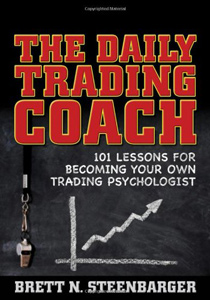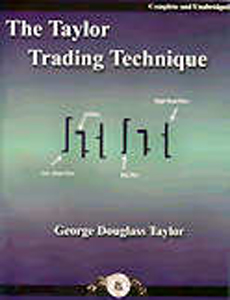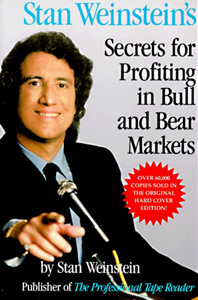Cognitive Bias for Share Trading

Further Reading
Much of share trading is about making decisions: the decision to enter a trade, to buy now, to wait and hold or to sell. The professional share trader or any professional investor would check facts, analyse them and attempt to make a wise decision from the data while keeping an objective mind. However, being human, we aren't perfect and, fallible and can be easily influenced from time to time. What is a cognitive bias? I'll let the CIA explain the condition:
Cognitive biases are mental errors caused by our simplified information processing strategies. It is important to distinguish cognitive biases from other forms of bias, such as cultural bias, organizational bias, or bias that results from one's own self-interest. In other words, a cognitive bias does not result from any emotional or intellectual predisposition toward a certain judgment, but rather from subconscious mental procedures for processing information. A cognitive bias is a mental error that is consistent and predictable.
The funny thing is that even if we know about the existence of the bias, there is little we can do about it. The CIA factsheet continues: "Awareness of the bias, by itself, does not produce a more accurate perception. Cognitive biases, therefore, are, exceedingly difficult to overcome."
Wikipedia devotes a long list of these various cognitive biases here and here. So what do these cognitive biases have to do with share trading and the markets?
If you sit and ponder about this for a while, yes, this bias is affecting you, but if it's affecting you – it's also affecting other share traders. And if you really think about it, much of the theory backing technical analysis rides upon some forms of cognitive bias.
Share Trading and Anchoring
Anchoring (also called focalism) is a cognitive bias which describes the tendency for individuals to focus on only certain criteria of the subject, overlooking other important information. For example, in the stockmarket, traders and investors are transfixed on prices. If you believe in technical analysis, then you already know, stock prices have a tendency to respect the support and resistance theory. When prices fall, the prices tend to touch back to old preset prices and when prices rise, they struggle past and shoot forward past a resistance point. The traders remember the old prices and they have anchored their value on the anchored information and may have overlooked the current value of the stock based on fundamentals.
The Crowd and the Bandwagon Effect
The bandwagon effect is used a lot in marketing in the form of the bandwagon fallacy or formally "argumentum ad populum" which means "appeal to the people" in Latin. It is when some piece of data is used to convince someone that if something is popular it may be true. For example: 8 out of 10 Australians invest in the share market, therefore it is a good investing platform. Or XYZ produces Australia's leading widget so you should buy XYZ's widget.
Share markets move because of crowds. If the trade volume is rising, and the stock price is rapidly rising, therefore it's a good bet and trade long, right? But you've got to be careful as you need to consider that there are always two sides to a trade: is there something the seller knows that the buyer doesn't?
I'm the Best Trader! Confirmation Bias
To add to all the other biases, this is takes the cake. As fallible humans, we gather data and interpret that data selectively and hence our own interpretation would be biased. As a share trader, analysing your stock portfolio via fundamental or technical means, you yourself will always be biased. You will have you own bias, seeing things the way you want to see them.
Personal finance columnist for The Wall Street Journal, Jason Zweig, wrote about confimation bias in 2009. Zweig writes... "your own mind acts like a compulsive yes-man who echoes whatever you want to believe. Psychologists call this mental gremlin the "confirmation bias." A recent analysis of psychological studies with nearly 8,000 participants concluded that people are twice as likely to seek information that confirms what they already believe as they are to consider evidence that would challenge those beliefs."
Lost Some Money in the Stock market today and it hurts! Loss Aversion Bias
Loss aversion is the bias where people tend to prefer avoid losing than acquiring gains. Professional stock traders don't need to be told that losses are psychologically twice as powerful as gains. For example a loss of $1,000 will hurt more than gaining $1,000.
And because of this Loss Aversion bias, beginners neglect to apply a stop loss. Which logically, applying the stop loss may seem a little contradictory since the stop loss will help the trader cut their (possible) losses only to a certain point (if the price were to fall dramatically - or go against their position) and having a stop in place would indeed cut your loss and the psychological pain. But people still fail to implement one since putting it into practise somehow confirms that you may indeed realise a loss at some point in time and that thought itself is painful.
There are a whole host of memory and cognitive biases you can examine and fret over. All you can do is be aware of these in your trading activities and perhaps build systems and procedures (just like what the big companies do) to mitigate bias creeping into your decision making.
- How to Trade Forex and Gold Options
- How to Trade the Gold Price and Profit!
- Forex Trading the EUR/USD Pair € EURO and $ US Dollar
- How to Trade Stock Market Indices S&P500
- How to Trade Crude Oil
- Forex Trading Psychology
- What Are Broker Recommendations?
- Free Tickets to Trading & Investing Seminar & Expo ($18) Brisbane 2013
- Stock Calc App
- All About Warrants
- Introduction to Exchange Traded Funds
- Introduction to Exchange Traded Funds: Features
- Introduction to Exchange Traded Funds: Domestic ETFs
- Introduction to Exchange Traded Funds: International ETFs
- Exchange Traded Commodities
- Australian Stock Scan
- Australian Online Share Trading
- List of Trading Books
- Interesting Thoughts about the Australian Dollar
- What's the Meaning of Hawkish?
- Do You Know How To Use the P/E Ratio
- Trading, Religion and Politics - Do They Have Anything in Common?
- Shares that are Volatile that Double and Half in the Short Term
- Telstra (TLS) T3
- Margin Call by E-mail
- The Cost of Holding a Position
- Lack of Disclosure: Compensation from ASX Listed Company
- Unrealistic Returns and Benchmarks
- CMC Markets Down
- Quality versus Quantity Forex Trading
- Woolworths 1H Sales $30.7bn up 3.2%
Date added 31-01-2013 - ASIC Fines CommBank's CommSec
Date added 25-09-2012 - Industry Super Network Calls to Ban High Frequency Trading (HFT)
Date added 22-09-2012 - NAB Launches Online Share Trading Platform
Date added 19-09-2012 - Reserve Bank of Australia Says 23 Countries Holding AUD
Date added 18-09-2012 - Australia Post Digital Mailbox
Date added 10-09-2012 - Winners and Losers of Trading for Week 2
Date added 16-01-2012 - 2012's First Week of the Best and Worst Traded Stocks
Date added 09-01-2012 - 2011's Last Best and Worst Traded Stocks
Date added 05-01-2012 - Best and Worst Pre-Christmas Traded Stocks
Date added 30-12-2011 - Trading Winners and Losers for Dec. 12-16
Date added 19-12-2011 - Best and Worst Traded Stocks for Dec. 5-9
Date added 13-12-2011 - Top 3 Best and Worst Traded Stocks
Date added 05-12-2011 - ASX Glitch Trading Halt
Date added 27-10-2011 - Worst Trade Stocks (and the Best)
Date added 06-08-2011
Top 150 Public Companies Listed on the Australian Stockmarket as at 29/05/2009
- BHP Billiton
- Westpac Banking Corporation (WBC)
- Commonwealth Bank of Australia (CBA)
- National Australia Bank (NAB)
- Telstra (TLS)
- ANZ
- News Corporation (NWS)
- Woolworths Limited(WOW)
- Woodside Petroleum Limited (WPL)
- Rio Tinto
- Westfield Group (WDC)
- Westfarmers Limited (WES)
- QBE Insurance
- CSL
- Newcrest Mining Limited (NCM)
- Origin Energy Limited (ORG)
- Santos Limited (STO)
- AMP Limited (AMP)
- Macquarie Group (MQG)
- Foster’s Group Limited (FGL)




